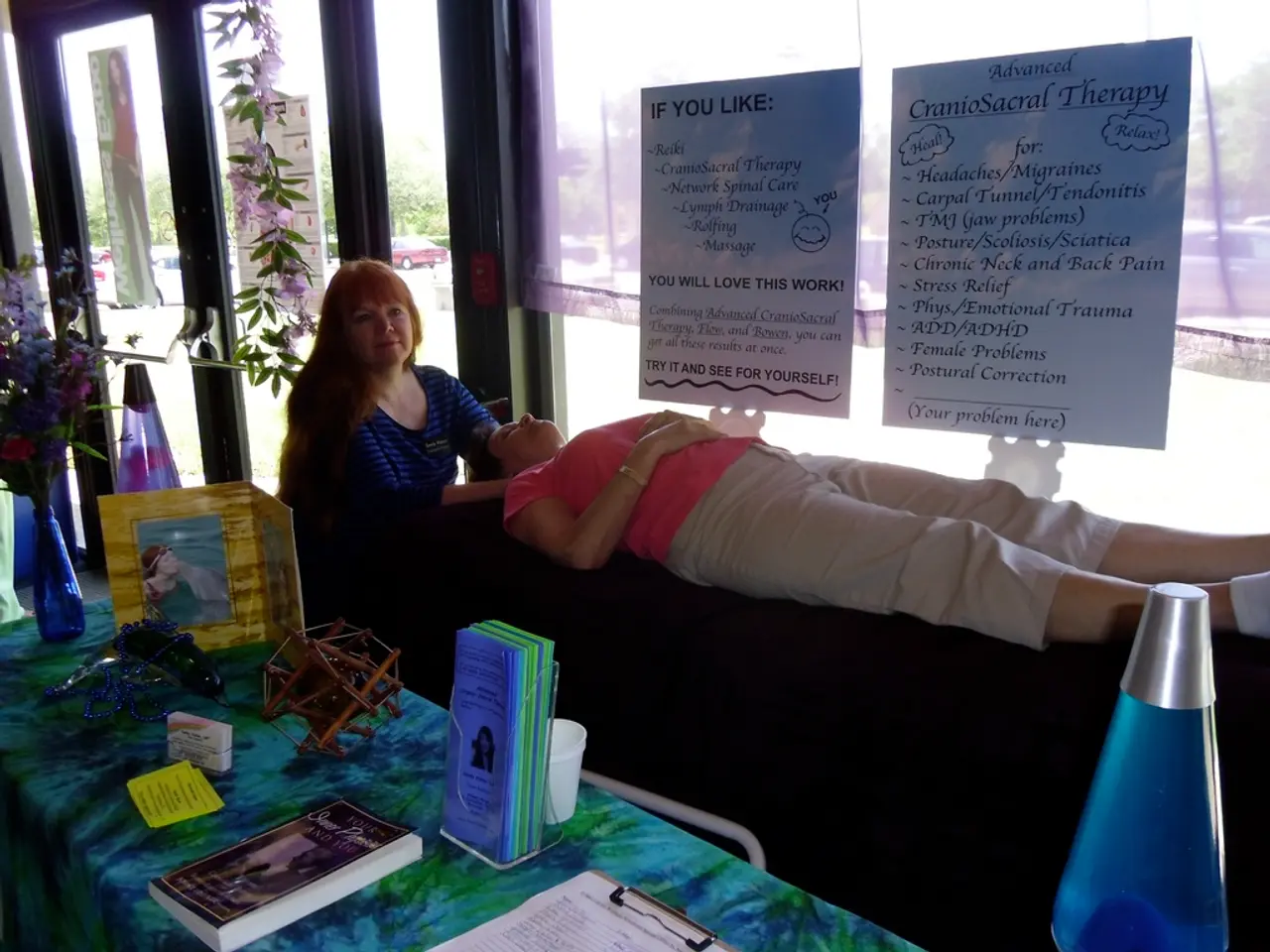Acupuncture as a Treatment for Hives: Does it Work?
Acupuncture, a traditional Chinese medicine practice that has been around for at least 2,000 years, is gaining attention as a potential treatment for hives. While the research is still limited and inconclusive, preliminary studies and clinical experiences suggest some symptom relief.
The mechanism behind acupuncture is not fully understood, but some research suggests it affects nervous system function. Some believe it functions at an energetic level, balancing the body's life force or Qi. However, more studies are needed to confirm its exact workings.
In a significant study that followed over 43,500 patients with hives for a decade, acupuncture was found to significantly reduce the risk of hypertension. This finding is particularly interesting for those with chronic spontaneous urticaria (CSU), who have a higher risk of developing high blood pressure.
Acupuncture has also shown promise in treating hives directly. In one case, a 26-year-old with severe and sudden hives (acute urticaria) underwent a 30-minute acupuncture treatment, and after 30 minutes, the hives were almost completely faded.
The acupuncture points used for hives may vary depending on the location of the hives and other factors at the discretion of the practitioner. The most common acupuncture points for treating hives include the urinary bladder meridian, the governor vessel, the conception vessel, the large intestine meridian, the spleen meridian, and the stomach meridian.
It's important to note that the Food and Drug Administration (FDA) regulates acupuncture needles as medical devices and requires them to be sterile and only used once. Acupuncturists must be fully licensed to ensure the safety and hygiene of the treatment.
While more studies are needed to confirm its effectiveness, acupuncture appears to be a low-risk treatment for hives and may be worth considering as a complementary approach. However, its effectiveness could be impacted by the patient's belief in the treatment and other factors like the patient-practitioner relationship.
Traditionally, hives have been treated with antihistamines, but acupuncture could provide an alternative or complementary treatment option. It's crucial to discuss this option with a healthcare provider before starting any new treatment.
Despite the promising findings, there are few reported complications from using acupuncture for treating hives. The main risk factors include the use of nonsterile needles, improper placement of needles, infections, wounded organs, and central nervous system injuries.
In conclusion, while the research on acupuncture for treating hives is still limited, preliminary studies suggest some symptom relief. More rigorous clinical trials are needed to draw definitive conclusions, but acupuncture could potentially offer an alternative or complementary treatment option for hives. Always consult with a healthcare provider before starting any new treatment.
Read also:
- Inadequate supply of accessible housing overlooks London's disabled community
- Strange discovery in EU: Rabbits found with unusual appendages resembling tentacles on their heads
- Duration of a Travelling Blood Clot: Time Scale Explained
- Fainting versus Seizures: Overlaps, Distinctions, and Proper Responses






